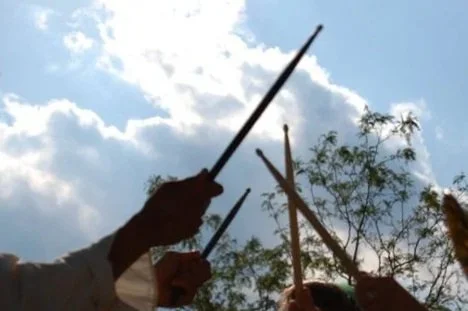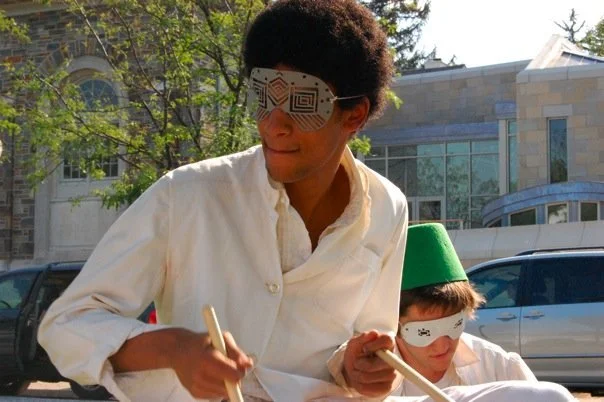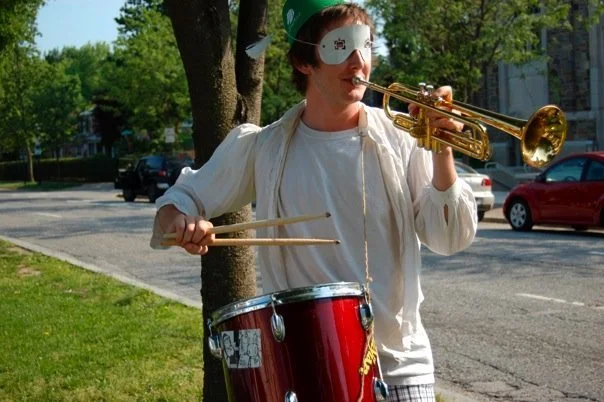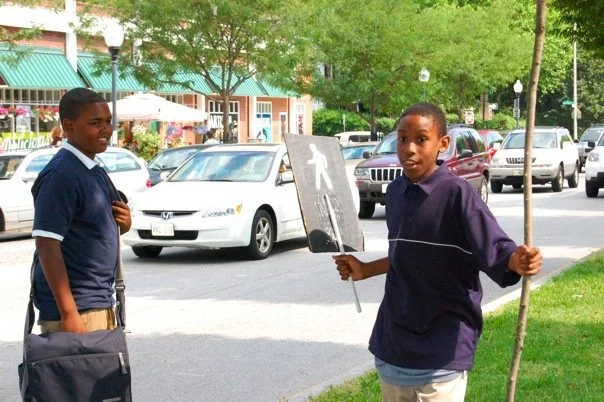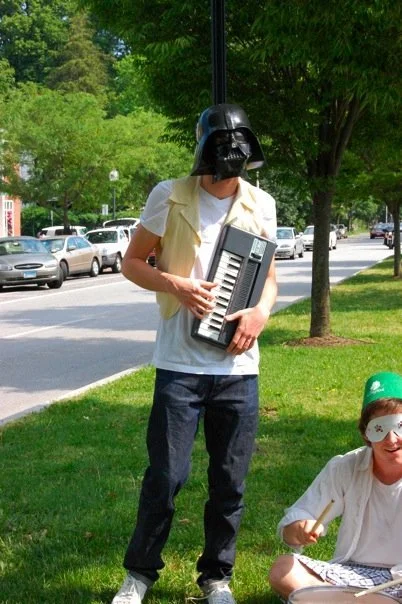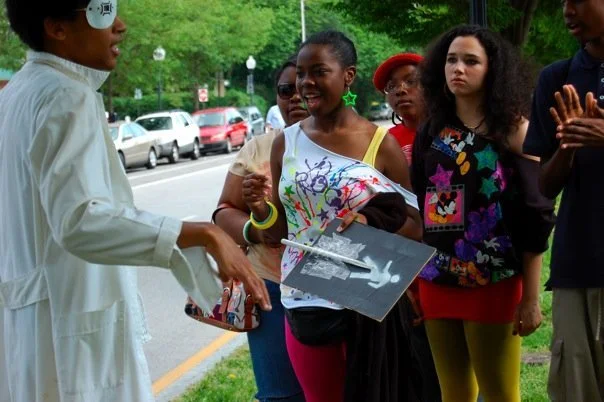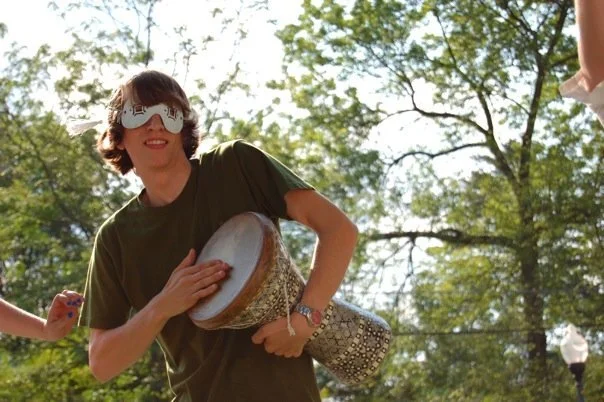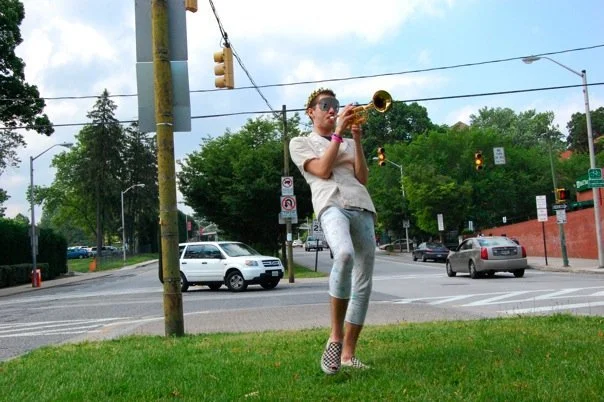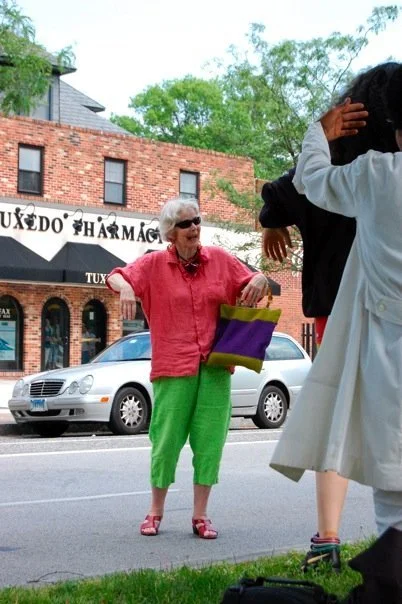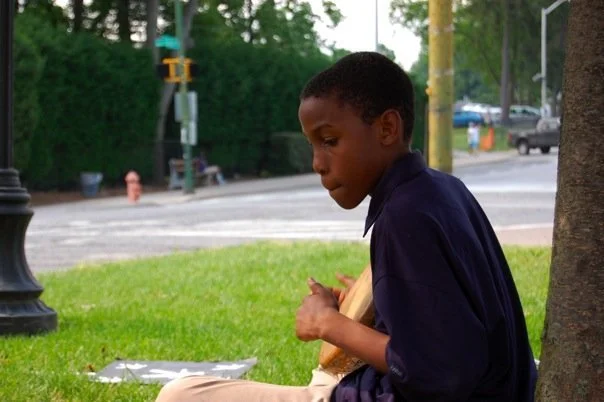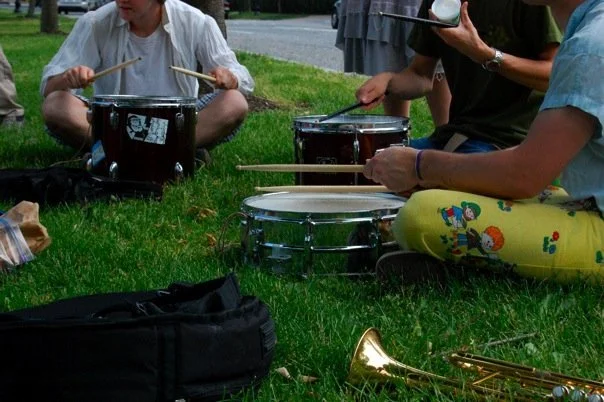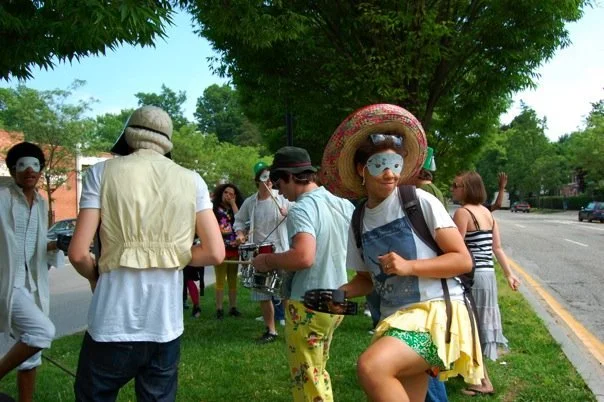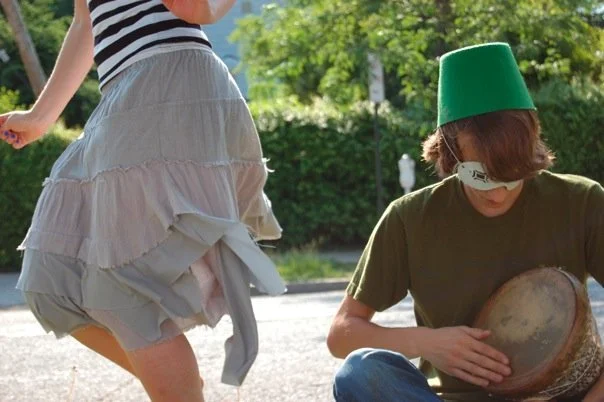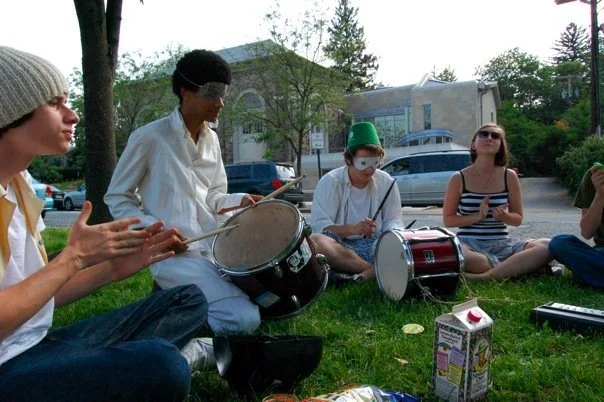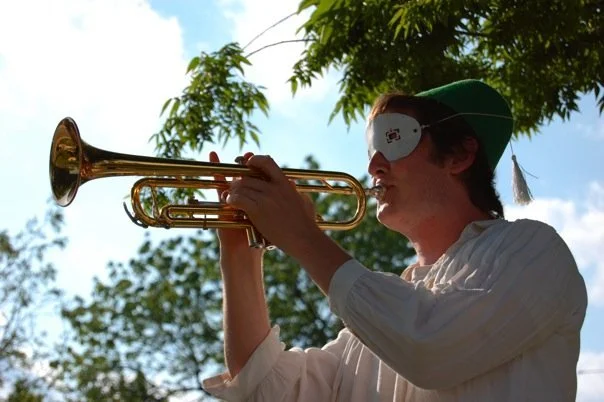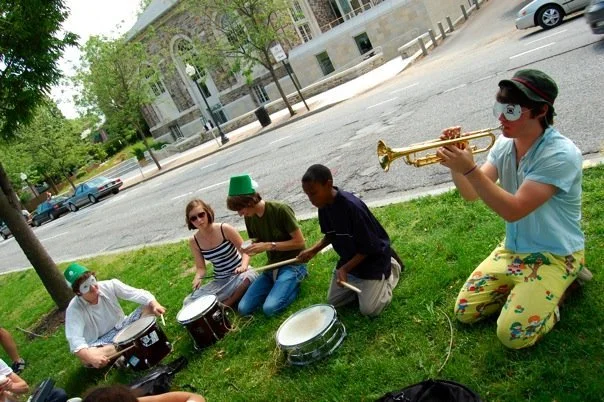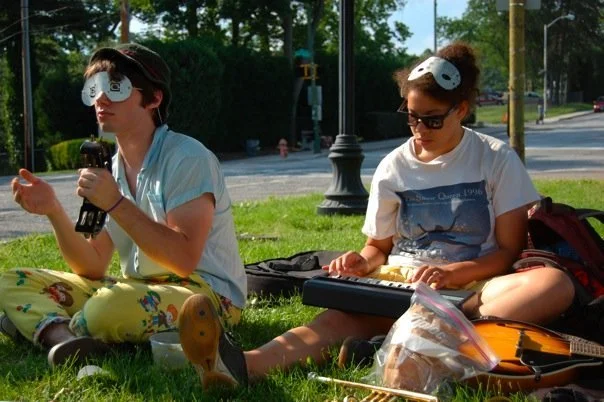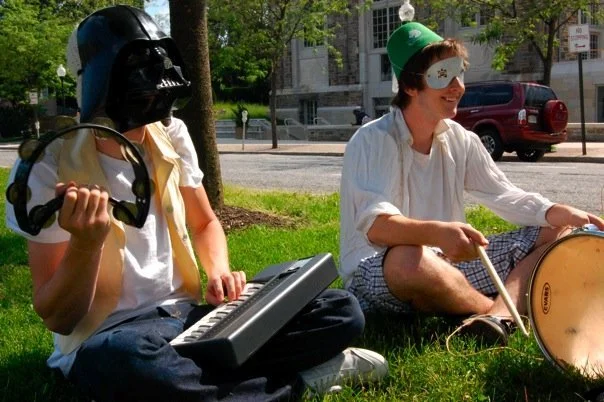Crosswalk Parades [2008]
This work is the origin story of the laugh test - I was in my kitchen one evening, making a despairingly-collegiate dinner while stressing about what to do for an upcoming performance assignment. Searching the middle-distance for ideas, a street corner caught my eye. It had one of those signals that beeps at all hours to let blind pedestrians know when it's safe to cross, and listening to the incessant chirping through my window, I started giggling uncontrollably, out loud, by myself in my kitchen. What if... every time you crossed the street, a drum major was there to lead your very own parade? I started laughing so hard I had to sit down, not necessarily because the idea was funny, but because I thought it would be hilarious if the drum major was me.
Keep in mind, dear reader, that A) I was doing this for a grade, and B) this was a time wayyy before Tiktok and 'doing it for the 'gram'. In 2008, there was jackass, and Trigger-Happy TV, and a few unknown youtubers doing pranks (and other, very odd things) in public, but for the most part, crossing the street was still a relatively 'normal' part of someone's day, for most. I have always liked thresholds and liminal spaces, and I had adopted crosswalks in some of my paintings as a motif, symbolizing the neglect and denigration of what we consider "pedestrian" spaces. It is in these environments that we find so much emotion and thought has been "put on mute" - even in a time before smart phones, zoning-out at the crosswalk was a part of the pedestrian's every day commute. What if something more interesting happened there, at this place so many lives come together? What if the routine to experience something new each time you crossed the street, not simply "pass by"? I wanted to create a situation, a series of Happenings, where any person could share a unique and unexpected experience within "The Grid", just as the Situationists had done.
I raided a friend's basement for some vintage clothes from around the time when the Situationists were active, and created a costume - long-tail button up, baseball pants, all white. In terms of headgear, my hair was already in a 70's style blowout (sign of the times), so I just created a simple mask for myself. For participants, I made little white flags (visual pun intended) with the 'crosswalk guy' symbol on them, and extra masks if anyone wanted to wear one. I grabbed some drum sticks and a floor tom from my drum kit, strapped it to my waist, went out to the crosswalk, and just stood there. The first person I saw, I asked them if they'd like me to lead their own parade. Having no idea what to expect, I assumed most people would simply look at me funny and decline, but to my surprise, many took me up on my offer. I spent a few hours a day for about a week just marching pedestrians back and forth across the street, banging my drum with them waving their flag. Sometimes I'd add a little chant or song, but for the most part, the drum was a perfect accompaniment.
This project expanded when I asked some friends if they wanted to create a bigger parade. They were happy to oblige, so we set upon making more costumes - again, all white, with flags and masks and instruments. We then walked along the roads to a median, where we had a small gathering with any passers-by who wanted to participate. We had all sorts of people come by and try a new instrument, or just sit and talk. It created a spectacle where a boring median once sat, and when we were gone, it left a memory in the minds of a few pedestrians who decided to stray from their 'grid'.
gallery below!
In 2008 I came upon the works of Guy Debord and the Situationists. I had never considered conceptual performance being one of 'my things' until I found the Situationist Anthology - Debord's intimations on the psychological inefficiencies of 'grid-like structures', and the courageous attempt to dismantle it on a socio-economic scale was fascinating to me. Debord and his Situationist cohort seemed to deliberately put forth not just criticisms of the abhorrent status quo - being French, I believe that much was obvious to them - but also concepts and ideas to the contrary. They offered alternatives, off-color options which sought to actively make their surroundings more interesting, thus improving quality of life. The alternate future proposed by Situationists, in regard to the many strikes and political upheavals going on in 1968 France, seemed like a good place to learn how to practice my own concepts in regard to an ongoing personal battle with a bland environment, forty years later, in the 21st century.
